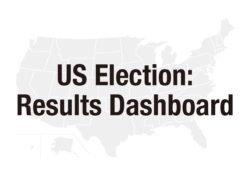- Yomiuri Editorial
- Surging prices
Establish effective support measures for struggling households
16:46 JST, September 10, 2022
The prices of electricity, food and other items have continued to rise. It is hoped that the government will take all possible measures to alleviate the pain on households caused by soaring prices.
The government has decided to take additional steps to combat rising prices. As part of new measures, the government will provide ¥50,000 to low-income households that are exempt from residential tax. About 16 million households, just under 30% of all households in the nation, are expected to be eligible for the handout.
Electricity, gas, gasoline and other energy prices rose by 16% in July from a year earlier. Prices of daily necessities are also rising sharply, with prices of cooking oil and bread rising 40% and 12%, respectively.
The lower the household income, the higher the percentage of income that goes toward daily necessities, and the greater the impact of higher prices. It is reasonable for the government to place priority on helping low-income households. It is hoped that the government will continue discussions to establish whether other support measures could be implemented.
The central government has allowed local governments to use subsidies for measures against COVID-19 to fund efforts to combat rising prices and plans to inject an additional ¥600 billion into the program. For example, it is envisaged that local governments will use the subsidy to fund benefits and other services for residents at their discretion.
However, in the past, some local governments came under criticism for inappropriately using public funds. Local governments need to accurately assess residents’ needs and consider appropriate ways to use the funds that are effective in combating soaring prices.
To curb gasoline prices, the central government will extend until the end of the year a program to subsidize oil wholesalers. About ¥1.9 trillion will have been spent under the program by the end of September. However, it is not realistic to continue spending huge amounts over long periods while the country is facing financial challenges.
Perhaps the government’s focus should shift to support for transportation companies, farmers using greenhouses, households in cold regions and other entities that need to use large amounts of energy.
The weak yen has also pushed up the cost of imported goods, such as fuel, contributing to the soaring prices. The yen briefly hit the ¥144 level against the dollar — its weakest level in 24 years — representing a depreciation of about ¥30 since the start of the year.
The yen’s rapid depreciation is partly because the Bank of Japan has maintained its monetary easing policy while the U.S. central bank has continued to raise interest rates sharply. BOJ Gov. Haruhiko Kuroda said Friday that the sharp volatility in foreign exchange trading is “unfavorable.”
The government and the BOJ must watch developments in the currency market more closely and must carefully explain the need for maintaining monetary easing.
The government said it plans to devise a comprehensive economic package in October to respond seamlessly to soaring prices. In addition to support for households and small and midsize businesses, measures to urge companies to raise wages will also be important.
(From The Yomiuri Shimbun, Sept. 10, 2022)
"Editorial & Columns" POPULAR ARTICLE
JN ACCESS RANKING




